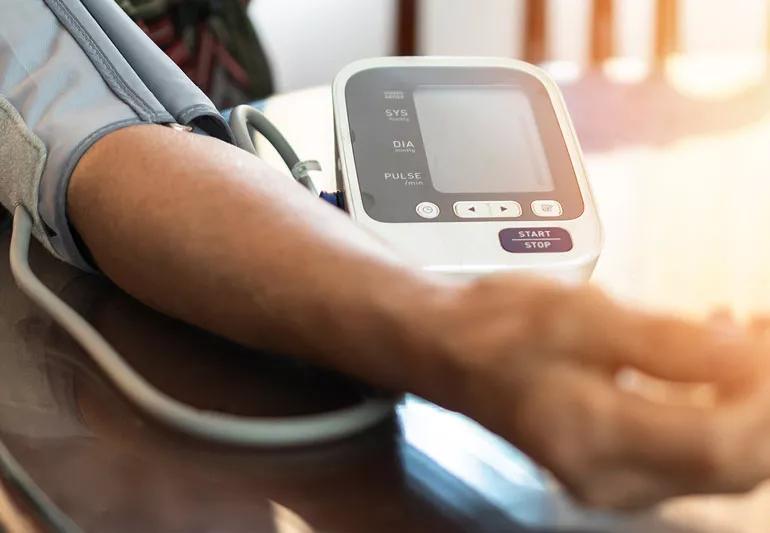Too much vitamin D can create heart health hazards

Sellers of vitamin D claim the nutrient can lower your blood pressure. But don’t believe the hype.
Advertisement
Cleveland Clinic is a non-profit academic medical center. Advertising on our site helps support our mission. We do not endorse non-Cleveland Clinic products or services. Policy
According to cardiologist Steven Nissen, MD, despite claims from the nutrition industry and non-medical personnel about vitamin D’s ability to lower blood pressure, no quality scientific study can confirm these benefits.
“There are many other claims about the benefits of vitamin D for heart health, but they aren’t substantiated by high-quality scientific studies,” Dr. Nissen says.
In fact, a study involving 25,871 participants published in the New England Journal of Medicine in 2019 concluded that vitamin D did not result in a lower incidence of cardiovascular events when compared to participants given a placebo.
According to Dr. Nissen, vitamin D does play an integral part in the regulation of blood pressure, but it’s a complicated process. And taking too much vitamin D can lead to excess calcium or hypercalcemia.
“Vitamin D enables the uptake of calcium,” he says. “In theory, too-high levels potentially can result in calcium deposits ending up on blood vessel walls, in heart valves and even in the liver and kidneys. So our advice is not to start vitamin D as a means to lower blood pressure.”
Vitamin D is an essential vitamin. Your body synthesizes vitamin D from exposure to natural sunlight. Most foods don’t contain significant amounts of the nutrient. So there may be a rationale to take some vitamin D, especially during times of year with less sunlight.
Advertisement
“This may be true, but be aware there’s no clear consensus on exactly how much vitamin D we ultimately need, and more importantly what levels could cause harm,” Dr. Nissen says. “That spells problems for anyone taking large amounts of vitamin D in the hope of boosting their health. That’s like treating yourself with a blindfold on.”
Vitamin D does help women at risk for osteoporosis. For men, though, there’s no clear evidence of benefit.
“The bottom line is, don’t take vitamin D supplements unless your doctor advises you to do so,” Dr. Nissen says.
Advertisement

Sign up for our Health Essentials emails for expert guidance on nutrition, fitness, sleep, skin care and more.
Learn more about our editorial process.
Advertisement

Foods high in potassium, calcium and vitamins C and E can help lower your blood pressure

Making lifestyle changes can help reduce your blood pressure, but taking cinnamon supplements probably isn’t one of them

Hypertension strains your heart and blood vessels, causing damage that can contribute to heart attacks

Daily stressors can increase BP in the moment, as well as contribute to habits that can feed long-term hypertension

Moderation is best when consuming caffeinated drinks to avoid unhealthy spikes in BP

Medication, exercise and diet changes can all help

While not magic elixirs, some drinks like beet juice and skim milk may help keep numbers down

Don’t believe the rumors about aspirin being a magic way to lower BP

Even small moments of time outdoors can help reduce stress, boost mood and restore a sense of calm

A correct prescription helps your eyes see clearly — but as natural changes occur, you may need stronger or different eyeglasses

Both are medical emergencies, but they are very distinct events with different causes